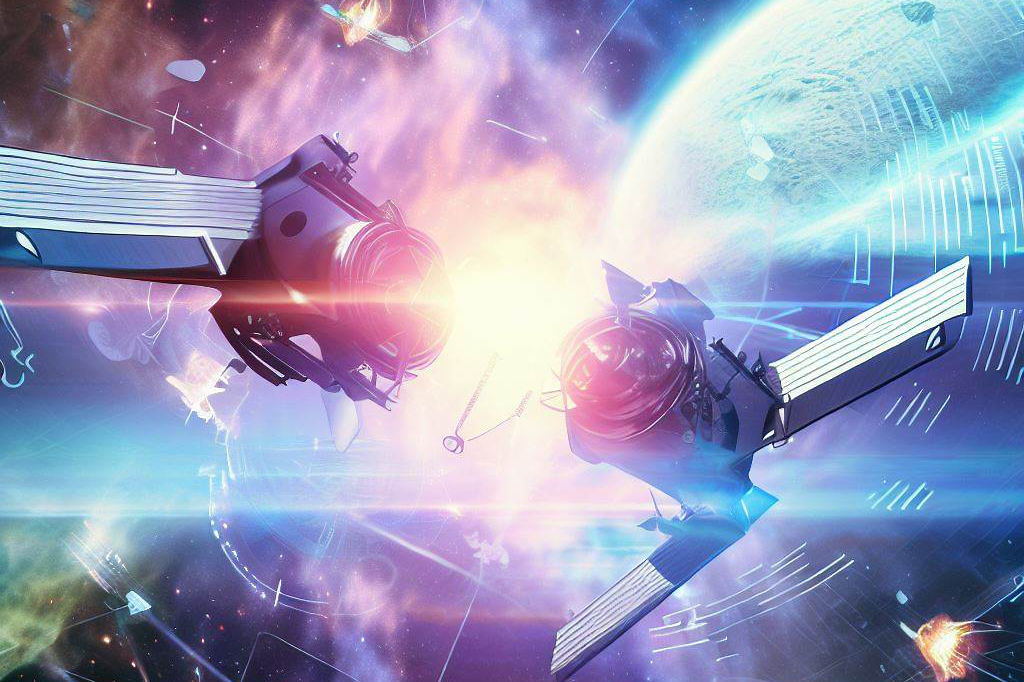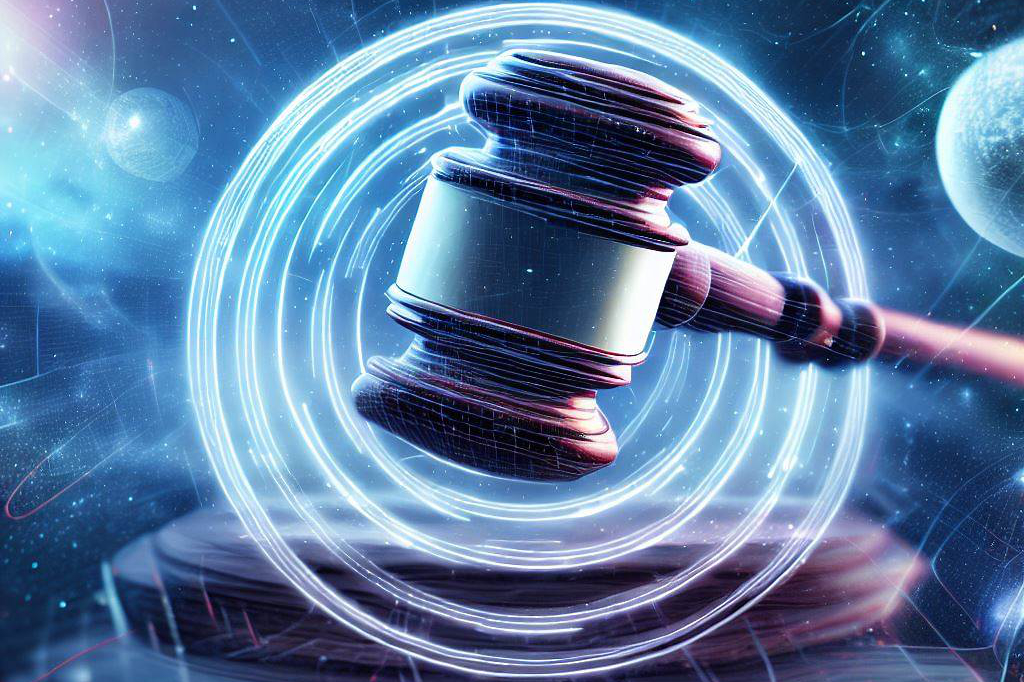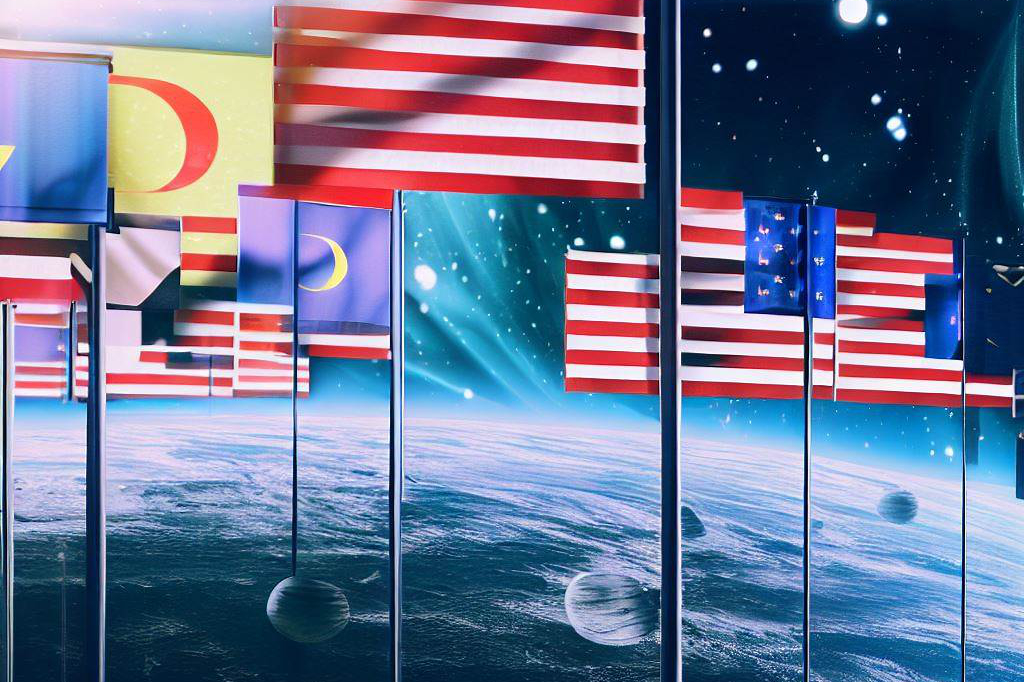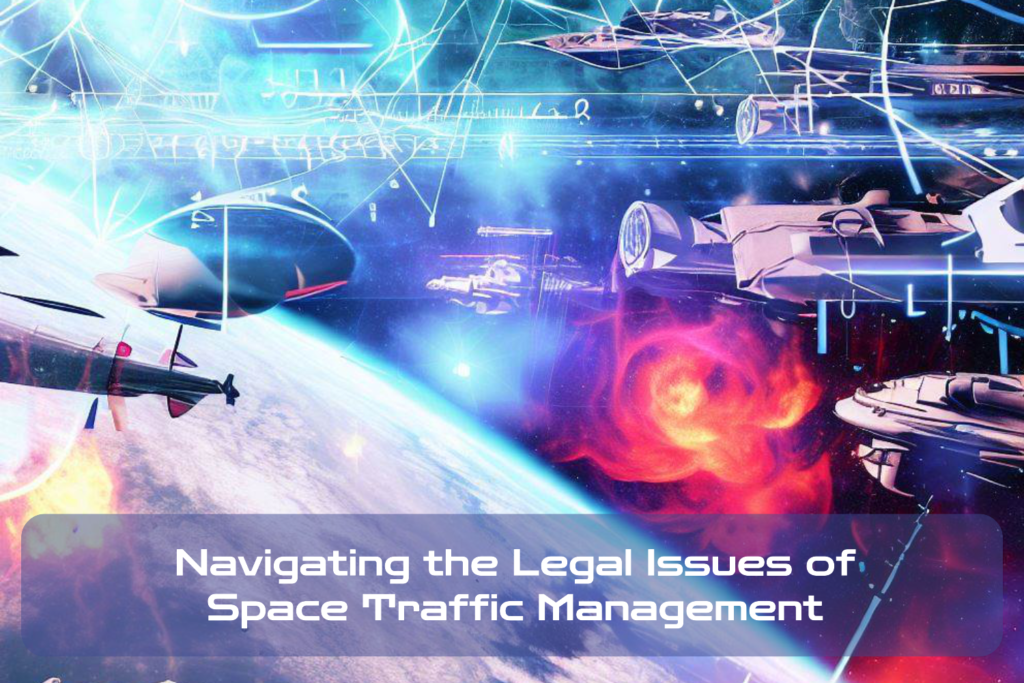The Emerging Issue of Space Traffic Management
Space traffic management is becoming an increasingly pressing issue as more and more countries and commercial entities send satellites, rockets, and other objects into orbit. With so much activity in space, the risk of collisions and other dangerous incidents is growing.
To mitigate these risks, there needs to be a system in place for managing space traffic. Space traffic management involves tracking the movement of objects in space, predicting potential collisions, and coordinating maneuvers to avoid them.
Although there are some international guidelines for space traffic management, they are not legally binding and do not cover all aspects of the issue. Therefore, it’s essential to understand the legal issues surrounding space traffic management to ensure that it’s done safely and sustainably.
Why Legal Issues Matter

Legal issues relating to space traffic management are important for several reasons.
Firstly, safety is paramount.
If two objects collide in orbit – even if they’re just small pieces of debris – it can create a cascade effect that causes even more collisions. This could have grave consequences not only for people on Earth who depend on satellites for communication but also for astronauts onboard the International Space Station or any future manned missions.
Secondly, there’s a lot at stake commercially. Companies are investing billions in launching satellites into orbit to provide services like internet access or GPS navigation.
Any damage caused by collisions or other accidents could result in significant financial losses.
There is an issue of sovereignty over outer space.
While international treaties exist outlining general principles about how countries should behave in space (such as avoiding harmful interference with other countries’ activities), there isn’t yet a comprehensive set of laws governing all aspects of activities conducted beyond Earth’s atmosphere. As exploration increases and more nations become involved in space activities, this may become a contentious issue that requires legal clarification.
What Needs to be Addressed

There are many legal issues related to space traffic management that need to be addressed, including liability and insurance, intellectual property rights, and the harmonization of national laws with international treaties. Understanding these issues and working towards developing comprehensive legal frameworks is essential for ensuring a safe and sustainable future in space.
International Space Law

Overview of international treaties and agreements related to space activities
As countries around the world race to explore outer space, it is crucial for them to adhere to international treaties and agreements related to space activities. These agreements have been put in place to ensure that the exploration of outer space is done safely and responsibly. The most important international treaty is the Outer Space Treaty of 1967.
This treaty was signed by over 100 countries and forms the basis of international law governing space activities. The Outer Space Treaty states that outer space is not subject to national appropriation or ownership, and that all countries should have equal access to explore outer space.
It also prohibits the placement of weapons of mass destruction in orbit or on celestial bodies. In addition, there are other important treaties, such as the Rescue Agreement, which requires countries to provide assistance to astronauts in distress regardless of their nationality.
The role of the United Nations in regulating space activities
The United Nations plays a crucial role in regulating space activities among different countries. It has established a Committee on the Peaceful Uses of Outer Space (COPUOS), which serves as a forum for discussions on issues related to outer space and its exploration. COPUOS has helped establish important principles such as
- remote sensing data exchange,
- emergency response planning,
- orbital debris mitigation,
- and registration requirements for objects launched into outer space.
In addition, COPUOS has been instrumental in organizing conferences where experts from different countries can come together and discuss key issues relating to outer-space law. However, despite these efforts, enforcing international law on outer-space activities remains a challenge.
Challenges in enforcing international law
One major challenge involves determining who may be held responsible when accidents or collisions occur between spacecraft from different nations operating within close proximity in orbit around Earth or other celestial bodies.
Additionally, there are still important questions regarding the extent to which private entities will be held accountable for their activities in outer space, especially those engaged in commercial spaceflight.
Another challenge to enforcing international law in space is the issue of jurisdiction. If an accident occurs in outer space, what court has jurisdiction over the matter?
This is a complex issue that requires collaboration among countries. As more countries and private entities venture into outer space, it becomes increasingly difficult to enforce compliance with international law.
National Space Law

Each country governs its own space activities, and as a result, there are different laws and regulations that apply to space exploration depending on the country in question. National Space Laws have become increasingly important as more and more states become involved in space activities.
National Space Law is usually designed to address issues of
- national security,
- protect astronauts,
- set liability limits for damages caused by space objects,
- licensing launch vehicles
- and regulating space activities.
Overview of how different countries regulate their own space activities
The United States was the first country to establish comprehensive legal frameworks for its commercial space industry under the Commercial Space Launch Act (CSLA) of 1984.
The CSLA created a framework for regulating commercial launch and reentry activities with an aim to preserve public health and safety, ensure environmental protection, and encourage private sector investment in commercial launch services.
In contrast, China has established an emerging regulatory regime with policies that govern its state-controlled industry. The Chinese government has also created regulations that require foreign entities or individuals who want to conduct any type of activity in China’s outer space territory or collaborate with Chinese organizations regarding outer space matters to secure approval from both the State Council and the Central Military Commission.
Comparison between different national laws and regulations
One major challenge facing national regulators is harmonizing laws across borders while still working within the legal frameworks established by international treaties such as the Outer Space Treaty.
For example, some countries have stringent export control regulations on certain technologies employed in remote-sensing satellites which can impede international cooperation on peaceful scientific research.
In addition to differences between countries’ national laws regulating their own industries; countries are also subject to international obligations under various treaties, including liability provisions under Article VII of the Outer Space Treaty which holds launching states responsible for damage caused by their space objects. Therefore, it is important for countries to maintain their own regulatory regimes while still complying with international treaties.
The challenges of harmonizing national laws with international treaties
Harmonizing national space laws with international treaties is a significant challenge that arises when drafting new legislation or amending existing ones. Countries have to balance the need to protect their national interests and adhere to the principles of international law, which is not always easy.
Additionally, some countries may be hesitant to adopt new space regulations due to concerns about the potential impact on their domestic industries.
National Space Law is essential in creating legal boundaries for outer space activities, ensuring that nations remain responsible for their activities in space while also being compliant with international obligations. As more countries become involved in space activities, it is clear that National Space Law will continue to evolve and adapt accordingly.
Liability and Insurance

Explanation of liability issues in case of accidents or collisions in outer space
As more companies are launching spacecraft into orbit, the risk of accidents or collisions is increasing. In the event of an incident, determining liability can be complicated. Unlike on Earth, there are no clear-cut laws for governing space activities.
However, there have been attempts to establish guidelines through international treaties such as the Outer Space Treaty and the Liability Convention. Under these treaties, states are held responsible for damage caused by their own spacecraft or objects launched from their territory.
In addition, commercial space companies are required to obtain insurance policies that cover potential damages caused by their activities. However, the amount and type of insurance required varies depending on the country and type of activity.
Insurance policies for commercial space companies
In recent years, several commercial space companies have emerged, and many more are expected to enter the market in the coming years. These companies are required to purchase insurance policies that cover potential damages caused by their activities.
The amount of coverage needed depends on a variety of factors, such as type of activity, location, and risk factors. There are two main types of insurance policies available: third-party liability insurance and property insurance.
Third-party liability insurance covers damages caused by a company’s activities to third-parties such as other satellites or government property. Property insurance covers damages sustained by a company’s own property such as spacecraft or launch vehicles.
While some countries require higher amounts of coverage than others, obtaining appropriate coverage can be challenging due to uncertainties surrounding the potential risks and costs associated with incidents in outer space. Additionally, there is currently no agreed-upon method for assessing damages in the event of an incident.
Governmental coverage
In addition to the private sector, coverage requirements exist for government agencies involved in outer-space exploration programs across various nations throughout the world. These agencies are obligated to protect public resources and comply with international treaties, so they also need comprehensive insurance coverage policies. It is essential for governments to maintain up-to-date insurance policies in order to sustain their efforts of space exploration and make progress towards the betterment of humanity.
To conclude, liability issues in outer space are complex and require careful consideration. As more commercial space companies enter the market and new technologies emerge, it will be important to continually evaluate and update insurance policies and regulations to ensure they are adequate for protecting both individuals and corporations within the field.
Intellectual Property Rights

Overview of Intellectual Property Rights in Outer Space
When it comes to intellectual property rights in outer space, things can get a little complicated. As of now, there are no universal laws that govern these rights.
Instead, the issue is left up to individual countries and space agencies to regulate. In general, intellectual property refers to creations of the mind such as inventions, literary or artistic works, and symbols or designs.
These creations can be protected by patents, copyrights, trademarks, and others. In outer space, however, these protections become more complex due to the fact that there are many different countries and private companies involved in various activities.
Challenges with Enforcing Intellectual Property Rights in a Globalized Market
One of the biggest challenges when it comes to enforcing intellectual property rights in outer space is determining which laws apply in different situations. For example, if a US company launches a satellite into orbit but it is made up of parts from multiple countries around the world, which country’s laws should apply?
Another challenge involves piracy and the unauthorized use of intellectual property by other countries or companies. It can be difficult for an individual or company to protect their intellectual property rights when they are operating outside of their own country’s legal jurisdiction.
Furthermore, as the commercialization of space continues to grow and expand into new areas such as asteroid mining and lunar exploration, new challenges will arise regarding ownership and protection of resources found on celestial bodies.
Overall, while there have been some efforts made by international organizations such as the United Nations to create guidelines for protection of intellectual property rights in outer space activities , much work still needs to be done in order for these rights to be fully protected given the globalized nature of space exploration today.
The Future of Space Traffic Management

Satellite Constellations: The New Frontier
As more and more companies race to send satellites into space, the creation of satellite constellations has become a popular trend. These constellations consist of hundreds or even thousands of small satellites that work together to provide global internet coverage, earth observation data, and other services.
However, this presents a whole new set of challenges for space traffic management. With so many satellites in orbit, the likelihood of collisions increases significantly.
In addition, the sheer number of satellites in a constellation can make it difficult for regulators to keep track of them all. As these constellations continue to grow in popularity and size, it will be important for governments and industry leaders to work together to ensure the safe and sustainable use of outer space.
Mining Opportunities: The Final Frontier
The prospect of mining valuable resources from the moon or asteroids has long been a dream for many scientists and entrepreneurs alike. However, with these new opportunities come new legal challenges. For example, who owns the resources that are extracted?
Are they considered property under international law? And what happens if two companies claim ownership over the same resource?
In addition, there are concerns about environmental damage caused by mining activities in outer space. As we venture further into the final frontier, it will be important for regulators to address these legal issues in order to ensure responsible and sustainable use of our solar system’s resources.
The Rise of Space Tourism: New Risks and Legal Challenges
With companies like SpaceX already offering trips into space for private citizens, it’s clear that space tourism is no longer just science fiction. But as this industry grows, so do the legal challenges associated with it. For example: What happens if a tourist gets injured during their trip?
Who is liable if there is an accident during launch or re-entry? And how will insurance policies be structured for space tourism companies?
These are just a few of the questions that need to be addressed as space tourism becomes a reality. As with any emerging industry, it will be important for regulators to work closely with space tourism companies to ensure the safety and well-being of all those involved.
Final Thoughts

Space traffic management is an increasingly important issue that requires careful consideration of legal frameworks.
Space activities are growing at an unprecedented rate, with a range of actors, including governments, private companies, and non-state actors, pursuing their own interests.
The potential for accidents or collisions in outer space is high, with potentially catastrophic consequences.
As such, establishing effective legal frameworks for the regulation of space activities is critical. International space law provides a solid foundation for regulating outer space activities through a series of international treaties and agreements.
However, there are challenges in enforcing these laws due to the lack of an overarching enforcement mechanism. Additionally, national space laws vary significantly from country to country, which could lead to conflicts between different legal systems.
Importance of continued research and discussion to ensure safe and sustainable use of outer space
To ensure safe and sustainable use of outer space in the long term, it is vital that research and discussion continue on this topic. It will require collaboration between different stakeholders – governments, industry leaders and international organizations – to establish effective regulatory frameworks that balance economic interests with safety considerations.
Moreover, we must consider emerging technologies like satellite constellations or asteroid mining when crafting these regulations, as they pose new challenges for the legal framework governing activities in outer space. We need experts who can weigh in on such matters so that we can create a robust framework that protects all parties involved.
Ultimately, though, despite these challenges, there remains much reason for optimism about the future of human activity beyond our planet’s atmosphere. With increasing awareness around these issues will come greater attention devoted to creating sustainable solutions that continue pushing human potential ever further into the cosmos!

C M, a seasoned editor, journalist, and consultant, is deeply fascinated by the convergence of technology, space, and the future of humanity.
With a particular interest in transhumanity, futurology, and the philosophical and ethical dimensions of these domains, C M serves as the lead contributor to SpaceSpotlight and TranscendSphere.
When not penning insightful articles on these rapidly evolving fields, C M indulges in their love for podcasts and books, proudly embracing their status as a ‘Happy Nerd Extraordinaire!’



